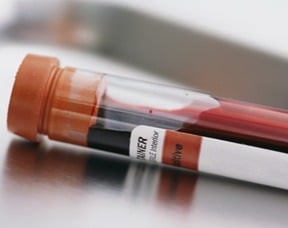What is Prostatic Specific Antigen (PSA)?
PSA stands for prostate-specific antigen. It is a protein produced by the cells of the prostate gland. This antigen helps keep the semen liquified so that sperm can swim freely. The antigen is usually found in the prostate gland and semen, but small amounts of it can also move into the bloodstream and can be measured by a blood test called a PSA test. Prostate cancer cells usually produce more PSA than do benign cells, causing the levels in your blood to rise. However levels can also be elevated in men with enlarged or inflamed prostate glands.
How Is PSA Measured?
The level of PSA in your body is measured with a simple blood test. The typical test for diagnosis and risk group determination is the “total PSA” which is simply a measure of all the PSA. Since the amount of PSA in the blood is very low, detection of it requires a very sensitive technology (monoclonal antibody technique). This test not only determines the levels in the blood, but whether or not the proteins joined with other substances in the blood stream. This is known as bound prostate specific antigen.
What Is Considered A “Normal” PSA Level?
A normal PSA level is around 4 ng/mL, but anything below a 10 is acceptable. It is important to note that levels increase with age, due to the growing size of the prostate. A male between the ages of 70 and 79 can typically register 6.5 ng/mL of PSA in the blood, while a male of 20 to 29 will typically register the normal level of 4 ng/mL. A 10 ng/mL of PSA in the blood can likely be a sign of prostate cancer, however this is not always the case.
Abnormal levels can be the result of an infection of the prostate, or even be the result of a preexisting condition. Non-cancerous conditions typically associated with an elevated PSA are, benign prostatic hyperplasia (BPH) and prostatitis. Besides the number itself, your doctor will consider a number of other factors to evaluate your PSA scores:
- Your age
- The size of your prostate gland
- How quickly your PSA levels are changing
- Whether you’re taking medications that affect PSA measurements, such as finasteride (Propecia, Proscar), dutasteride (Avodart) and even some herbal supplements
Is Having A PSA Test Necessary?
PSA screening has been a controversial topic since the United States Preventative Task Force (USPSTF) recommended against routine PSA-based screening in 2012. Some experts argue that the PSA is not reliable because it can give a false positive (indicating cancer that is not there) and a false negative (missing prostate cancer that is there) results. Despite this, professional organizations vary in their recommendations about who should — and who shouldn’t — get a PSA screening test. While some have definitive guidelines, others leave the decision up to men and their doctors. Medical organizations such as the American Cancer Society and American Urologic Association still recommend some form of prostate cancer screening. Encouraging patients to discuss with their doctors both the merits and drawbacks to screening.


